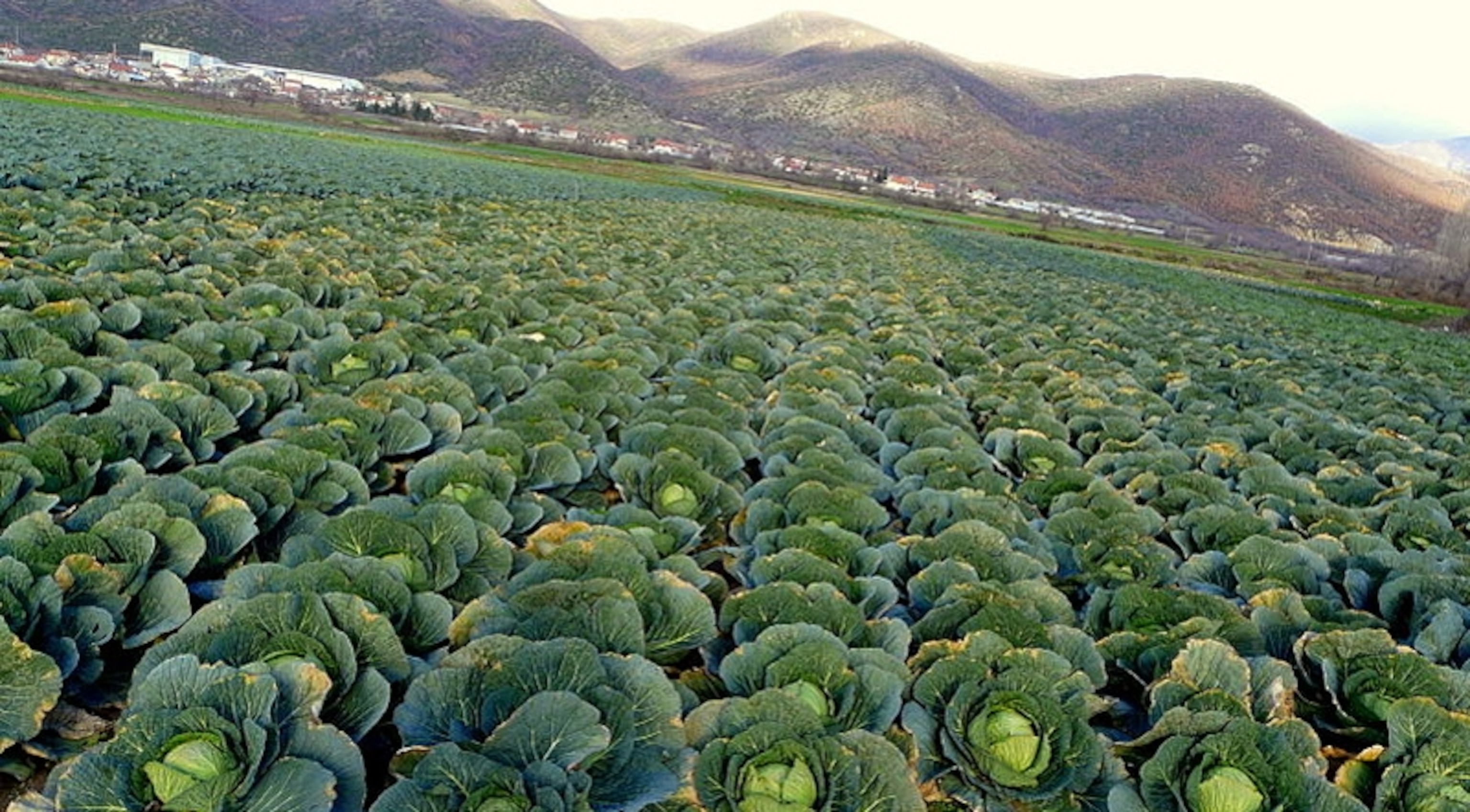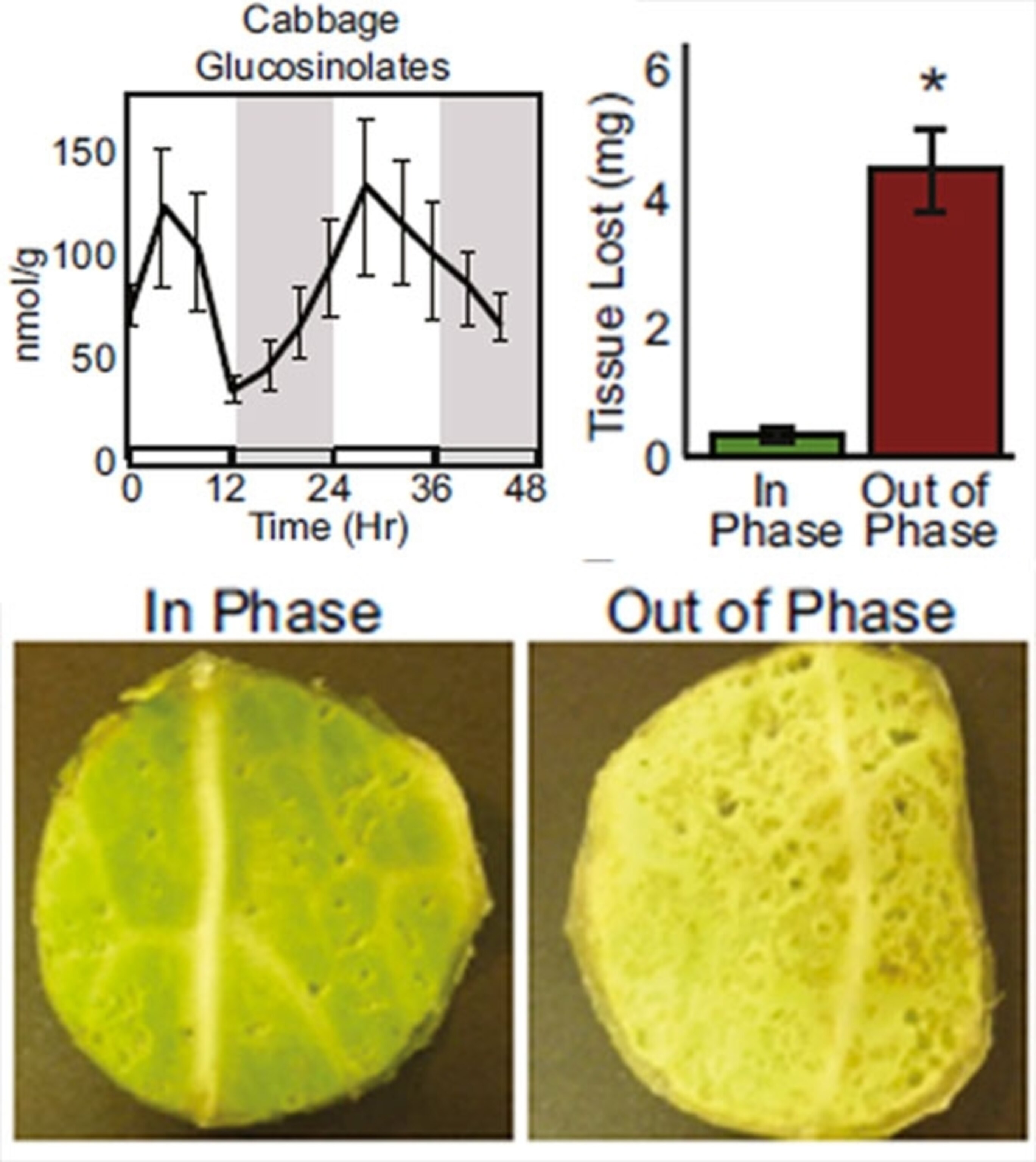
The Cabbage in Your Fridge Still Runs on a Daily Clock
Kids say the darndest things. Janet Braam from Rice University was talking to her teenage son about her research on plant clocks. She had found that Arabidopsis, a commonly studied laboratory plant, produced more defensive chemicals at times of the day when insect pests were most likely to attack them. She told him that the levels of these chemicals probably rise and fall over the day, driven by an internal clock like the ones that dictate our own daily rhythms.
He said, “Well, I know what time of day I’m going to eat my vegetables!”
It was a joke, but it got Braam thinking. Shop-bought vegetables also make their own defensive anti-insect chemicals. If Arabidopsis manufactures these substances according to a 24-hour cycle, there’s no reason why the vegetables in a supermarket aisle shouldn’t do the same. So, Braam went to the local grocer, bought some cabbages, and went about resetting their clocks.
The vegetables in your fridge are still very much alive, even though they’ve been separated from their parent plants. They still take in oxygen, send out carbon dioxide, lose water, and metabolise nutrients (which is why they continue to ripen). Even so, Braam was surprised at how easy it was to reset their daily rhythms. “It means that post-harvest vegetables were more “alive” than we might have imagined,” she says.
Simple cycles of light and shade were enough to control the levels of substances called glucosinolates in cabbages, even when they were sitting in the fridge. These naturally produced chemicals protect the vegetables from pests and might be good for our health, which suggests that the way we store our produce could affect its shelf life and nutritional value.
Braam’s graduate student Danielle Goodspeed demonstrated this by cutting small discs from the leaves of freshly bought cabbages and exposing them to cycles of 12 hours in light and 12 hours in darkness. (This is a common way of adjusting body clocks. Just think about what happens when you cross time zones—you get jetlag because it’s bright when you expect it to be dark, but your body soon adjusts to the new light schedule.)
Sure enough, the cabbages started producing three times as much glucosinolates when they saw the light. Their clocks would even tick away when stored in a fridge, and continued to do so for a week after harvest.
Goodspeed also use similar light cycles to set the daily rhythms of cabbage-eating caterpillars. If the caterpillars were 12 hours out of time with the cabbages, they faced fewer defences than if their body clocks were synchronised. As a result, they ate more and grew bigger, while the cabbages lost 20 times more of their weight.
This is clear evidence that the rise and fall of a cabbage’s glucosinolates can affect how vulnerable it is to pests. Indeed, the team also found that the caterpillars cause less damage on cabbages that had been kept in a light cycle than those that were stored under constant light or constant darkness. And the same was true for other fruits and vegetables that rely on different defensive chemicals, including lettuce, spinach, courgettes, sweet potatoes, carrots, and blueberries.

People who know about biological clocks may not be surprised at the results. After all, other studies have shown that such clocks control the activity of a third of the genes in Arabidopsis—genes that are involved with almost every aspect of the plant’s life, including anti-insect defences. But Braam’s team have gone one step further in showing that these rhythmic pesticides can deter actual caterpillars and have a substantial impact on the plant’s health. “In hindsight, this might seem obvious, but I think that this study displays great creativity and insight,” says Rob McClung from Dartmouth College. “The implication is that food quality may cycle during postharvest storage.”
Indeed, by exposing fruits and vegetables to cycles of light and darkness, we may be able to tweak how durable they are. “The good news is that it’s usually easy to do,” says Andrew Millar, a clock researcher at the University of Edinburgh. “It might even save some energy in the post-harvest supply chain” because the cost of exposing crops to a light cycle could be offset by making them more resistant to pests.
The trick would be to work out what the right cycles are. As we domesticated and bred different plants, it’s likely that we also unwittingly changed their biological clocks, and Millar has shown that those of different varieties tick at different speeds. “There may well be untapped commercial value in breeding for optimal rhythms,” he says.
He adds, “Much of biology is controlled by 24-hour rhythms, and many potential benefits are lost if we ignore or work against biological clocks. Labs around the world constantly discover that the biological clock controls parts of biology they had worked on for years, unaware of the underlying rhythms.”
Finally, a word on cancer. The team bill glucosinolates as anti-cancer chemicals and suggest that we could use light cycles to make our food more nutritious by raising the levels of these substances. It’s true that glucosinolates can stop the growth of isolated cancer cells but, then again, so can a lot of things.
The reality is that despite well-worn health advice, the evidence that vegetables can reduce the risk of cancer is very weak. This even applies to cruciferous vegetables like cabbages or broccoli, which are rich in glucosinolates. In many large studies, people who eat the most cruciferous vegetables are no less likely to develop different cancers than those who eat little of them. This study may have implications for our health, but there’s reason to be a little sceptical about that particular claim.
References: Goodspeed, Liu, Chehab, Sheng, Francisco, Kliebenstein & Braam. 2013. Postharvest Circadian Entrainment Enhances Crop Pest Resistance and Phytochemical Cycling. Current Biology http://dx.doi.org/10.1016/j.cub.2013.05.034